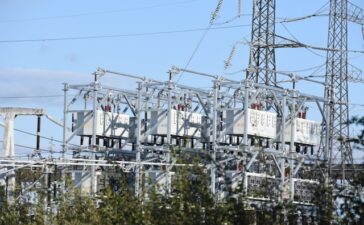Outboard motors have been powering boats for decades, but the technology behind them has evolved significantly in recent years. One of the most significant advancements in outboard motor technology has been the rise of electric motors.
These motors offer several advantages over traditional petrol-powered motors, including improved efficiency, reduced noise, and lower environmental impact. In this article, we’ll take a closer look at electric outboard motors and the benefits they offer.

Electric outboard motors are powered by batteries, which provide energy to an electric motor. These motors can be either direct drive or have a gear reduction system, and they typically use a propeller to propel the boat forward. One of the most significant benefits of electric motors is their improved efficiency. Electric outboard motors Australia are much more efficient than petrol engines, which means they can travel further on the same amount of energy. This improved efficiency also means that electric motors can be smaller and lighter than petrol engines while still delivering the same power output.
Another benefit of electric outboard motors is reduced noise. Traditional petrol-powered motors can be quite noisy, which can be a problem for both the boater and the surrounding environment. Electric motors, on the other hand, produce very little noise, which makes for a more peaceful boating experience. This reduced noise is also beneficial for the environment, as it reduces the impact of boating on wildlife in the area.
Electric outboard motors also have a lower environmental impact than petrol-powered motors. Petrol engines produce emissions that can harm the environment, including carbon monoxide, nitrogen oxides, and particulate matter. Electric motors produce no emissions during operation, which makes them a cleaner and more environmentally friendly option. Additionally, because electric motors are more efficient, they require less energy to operate, which means they have a lower carbon footprint overall.
One of the most significant challenges of electric outboard motors is range. Batteries can only store a limited amount of energy, which means that electric motors have a limited range compared to petrol engines. Newer batteries are smaller, lighter, and more energy-dense than older models, which means that electric motors can travel further on a single charge. Additionally, many electric outboard motors come with features like regenerative braking, which can help extend the battery’s range by capturing energy that would otherwise be lost during braking. Another challenge of electric outboard motors is charging.
Unlike petrol engines, which can be refueled quickly and easily at a petrol station, electric motors require charging. This can be a problem if you’re out on the water and the battery runs out of charge. However, this challenge is also being addressed as more charging infrastructure is being built. Many marinas and harbours now offer charging facilities for electric boats, and new charging technologies like wireless charging are also being developed.

Despite these challenges, electric outboard motors are becoming an increasingly popular choice for boaters. They offer several advantages over traditional petrol-powered motors, including improved efficiency, reduced noise, and lower environmental impact. As battery technology continues to improve and charging infrastructure expands, electric outboard motors are likely to become even more popular in the coming years.




